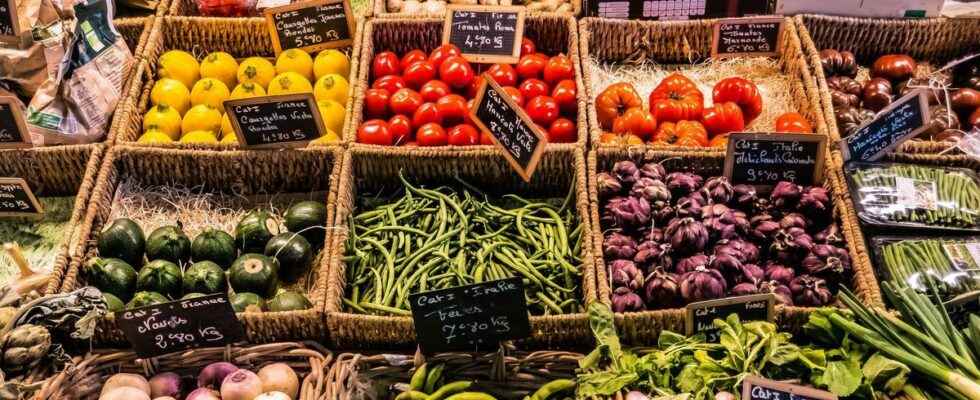Published on
Updated
Reading 2 mins.
The question still raises: how long can the Sars-Cov-2 virus survive on food, contaminated at the supermarket, for example? In the United Kingdom, the Food Standards Agency (FSA), the British agency in charge of food safety, asked its researchers to answer this question and to assess the associated risk of contamination.
At the start of the Covid-19 pandemic, many questions surrounded Sars-Cov-2: mode of transmission, lifespan of the virus on different surfaces… In England, scientists have just studied the duration of life of the virus by intentionally contaminating food.
A study on Covid-19 contamination of food
The authors of this work explain that they deliberately contaminated food on their surface as well as food packaging in the laboratory.
“The foods tested were selected because they are typically sold loose on supermarket shelves or uncovered at deli counters or market stalls, can be difficult to wash, and are often eaten without further processing, i.e. without cooking. The food packaging materials were selected because they are the most widely used food packaging materials where consumption of the product may involve direct mouth contact with the packaging” they specify.
Among the foods tested are fruits and vegetables but also olives, bread or pastries.
Conditions close to reality
To be as close to reality as possible, the researchers have “measured how the amount of infectious virus present on these surfaces decreased over time, at different levels of temperature and humidity, reflecting typical storage conditions“.
According to their measurements, the virus survived several days on foods such as cheese or ham. On others like apples or olives, the viral load dropped rapidly, on the contrary. In general, English scientists have measured a “significant drop” viral contamination levels during the first 24 hours of the test, on most foods.
A “low” risk of contamination through food
For the authors, contamination with Sars-Cov-2 through food would be possible if the mucous membranes come into direct contact with a contaminated product.
A low possibility, insofar as the contamination by the virus is done mainly by the inhalation of droplets and aerosols. For the authors of this work, “There is therefore no need to take extra precautions due to Covid-19 when handling food as long as good hygiene practices are in place.”
